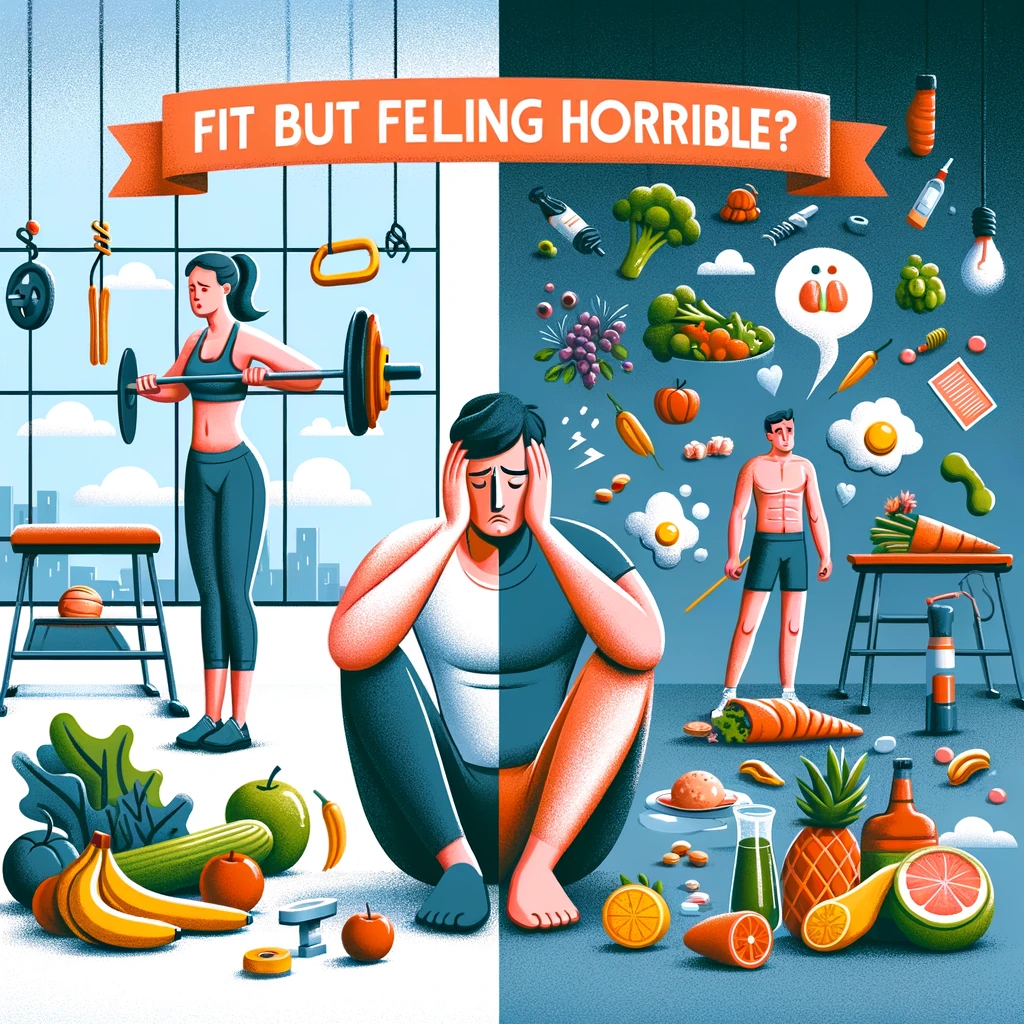You hit the gym regularly, clock in your miles, and your physique might even be the envy of many. Yet, despite being physically fit, you often find yourself feeling less than stellar. Surprisingly, this is a common paradox in the fitness world. While exercise is a crucial part of a healthy lifestyle, it’s only one piece of the wellness puzzle. The missing piece for many? Nutrition – specifically, the power of plants. Let’s explore why even the fittest individuals can feel horrible and how a plant-rich diet can turn things around.
The Fitness-Wellness Disconnect
Being fit generally implies physical strength, endurance, and a lean body composition. However, it doesn’t automatically equate to feeling great. Factors like fatigue, poor digestion, inflammation, and stress, often overlooked, can greatly impact your overall well-being. This is where diet, particularly the kinds of foods you consume, plays a critical role.
Nutrient Density Matters
Many fitness enthusiasts focus on macros (proteins, fats, carbohydrates) but pay less attention to micronutrients (vitamins, minerals, antioxidants). A diet lacking in micronutrients can lead to issues like chronic fatigue, weakened immunity, and even mood swings. Plant-based foods are rich in these essential micronutrients that are often missing or insufficient in a diet focused solely on macronutrients.
Inflammation: The Hidden Culprit
Regular intense workouts can lead to chronic inflammation, especially if not paired with proper nutrition. This can manifest as joint pain, muscle soreness, or general fatigue. Plants, with their high antioxidant content, can help combat this inflammation. Foods like berries, leafy greens, and turmeric are known for their anti-inflammatory properties.
Gut Health and Mood
There’s a growing body of research linking gut health to overall mood and mental well-being. A diet low in fiber can lead to poor gut health, which in turn affects your mood. Plant-based diets are high in fiber, which is essential for maintaining a healthy gut microbiome. Improved gut health can lead to better digestion, enhanced nutrient absorption, and even improved mood and mental clarity.
The Stress Factor
Physical fitness doesn’t shield one from the impacts of stress. Chronic stress can lead to hormonal imbalances, poor sleep quality, and a weakened immune system. Certain plants like ashwagandha and holy basil (tulsi) are known adaptogens, which help the body manage stress more effectively.
How to Incorporate More Plants into Your Diet
Start with One Meal: Begin by introducing more plant-based foods in one meal a day. Breakfast is a great start with options like oatmeal topped with fruits and nuts or a green smoothie.
Experiment with Plant-Based Proteins: Swap out animal proteins for plant-based alternatives like lentils, chickpeas, tofu, or tempeh in your meals.
Snack Smart: Choose plant-based snacks like raw nuts, seeds, or fruit instead of processed snack foods.
Color Your Plate: Aim for a variety of colors on your plate, which typically means a range of nutrients.
Hydrate Healthily: Replace sugary drinks with water, herbal teas, or freshly squeezed vegetable juices.
Conclusion
Being fit is undoubtedly an achievement, but it doesn’t always align with feeling great. Integrating a diverse range of plant-based foods into your diet can fill the nutritional gaps, fight inflammation, improve gut health, and help manage stress, leading to an overall improvement in how you feel. Remember, fitness is not just about the external physique; it’s also about internal health and well-being. By embracing more plant-based foods, you’re not just working towards a fit body, but also a happier, healthier life.
